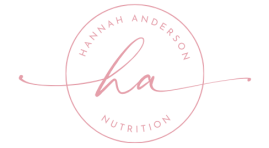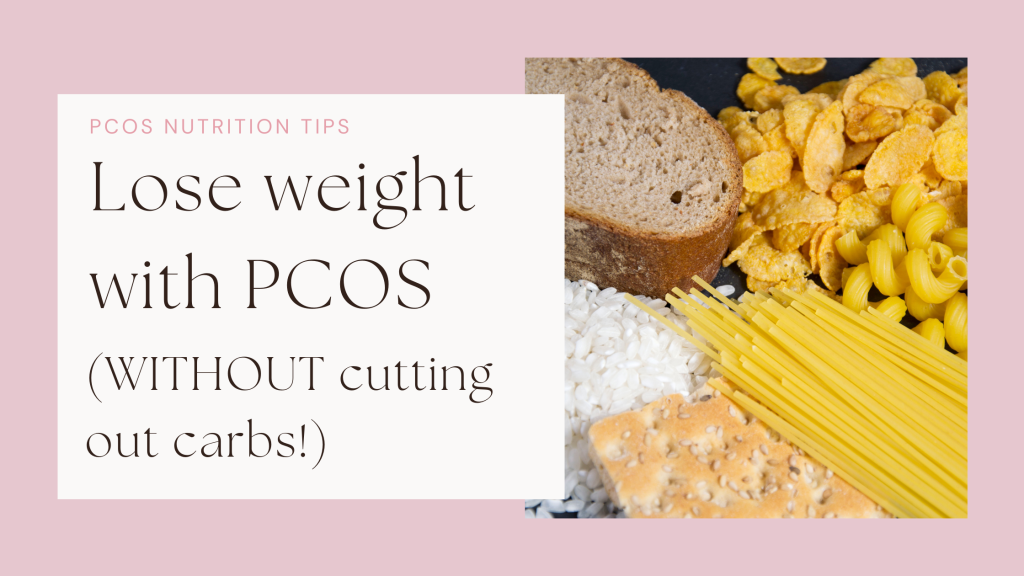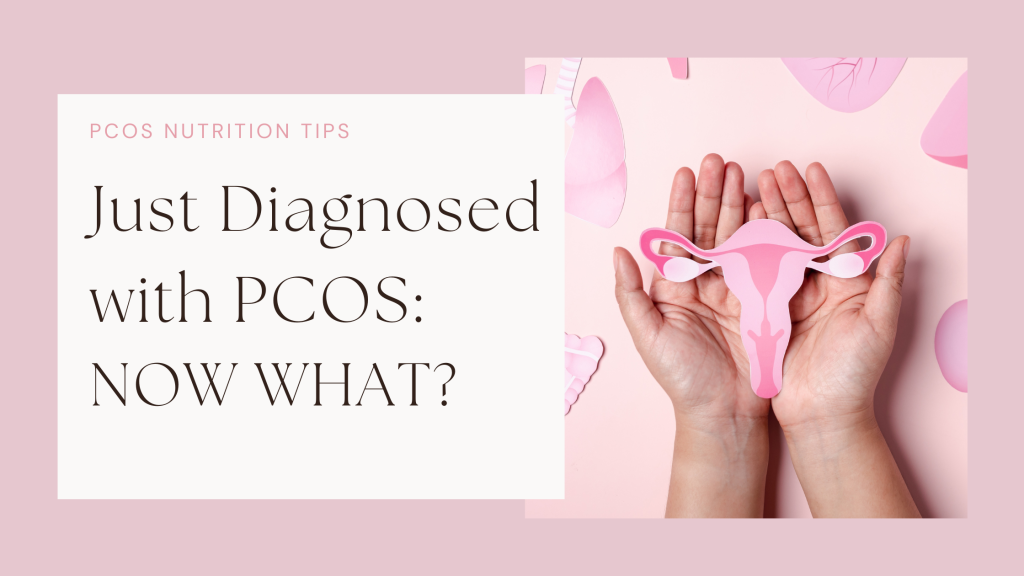PCOS Recommended Protein: What You Need & How To Get It
What’s the recommended protein needs for women with PCOS? Believe it or not, this is one of the most common nutrient deficiencies I see as a PCOS dietitian nutritionist.
Polycystic Ovary Syndrome (PCOS) affects millions of women worldwide, causing hormonal imbalances, insulin resistance, and other metabolic challenges. Nutrition plays a pivotal role in managing PCOS symptoms, and protein stands out as a key player.
In this blog post, we’ll explore the benefits of protein for PCOS, how to determine your protein needs, the best sources of protein, and an example meal plan to meet your daily requirements.
This post contains affiliate links. This means that if you click on the link and purchase the item, I may receive an affiliate commission at no additional cost to you. Thanks for your support so I can keep creating valuable content like this post.
Benefits of Protein for PCOS
Protein is more than just a macronutrient—it’s a tool for balancing hormones, stabilizing blood sugar, and managing appetite. Here’s why protein is essential for women with PCOS:
- Improves Satiety: Protein helps regulate hunger hormones like ghrelin, keeping you fuller for longer. This is crucial for managing cravings often experienced with PCOS.
- Supports Blood Sugar Control: Studies show that higher protein diets can improve insulin sensitivity and reduce blood sugar spikes. A 2020 study in the Journal of Clinical Endocrinology & Metabolism highlighted the benefits of protein in stabilizing post-meal glucose levels in women with PCOS.
- Promotes Lean Muscle Mass: PCOS can lead to muscle loss due to insulin resistance. Protein intake, combined with resistance training, helps build and preserve muscle, improving metabolic health.
- Reduces Inflammation: Chronic low-grade inflammation is common in PCOS. Research suggests that certain protein-rich foods, like fish and legumes, have anti-inflammatory properties.
- Supports Fertility: Plant-based proteins, such as legumes, nuts, and seeds, may positively impact fertility in women with PCOS. A 2016 study in the American Journal of Public Health found that plant-based diets were associated with improved ovulatory function and reduced inflammation, which are key factors in fertility. Incorporating more plant-based proteins can help balance hormones and support reproductive health.
How Much Protein Do You Actually Need?
It seems like everyone says 150g protein per day is the magic number. But is that actually how much you need?
Nutrition is never one-size-fits-all and the recommended protein needs for PCOS can greatly vary based on age, weight, activity level, and individual health goals.
For women with PCOS, a general guideline is to aim for 20-30% of daily calories from protein or about 1.2-2.0 grams of protein per kilogram of body weight.
Here’s a quick formula to calculate your needs:
- Determine your weight in kilograms: Divide your weight in pounds by 2.2.
- Choose your protein multiplier: Use 1.2 for sedentary individuals and up to 2.0 for those who are very active or strength training.
For example, a 150-pound woman (68 kg) aiming for moderate activity would need around 82-109 grams of protein daily.
I find most my clients needs between 120-150g protein a day. And they are always amazed at how much better they feel and how much easier it is to lose weight once they start eating enough protein!
Best Sources of Protein for PCOS
Wondering what protein foods are best for PCOS? Incorporating a variety of protein sources ensures you get a balance of essential amino acids and other nutrients. Here are some top picks:
- Lean Animal Proteins: Chicken, turkey, lean cuts of beef, eggs, and fish (like salmon or tuna) provide high-quality protein and essential fatty acids.
- Dairy: Greek yogurt, cottage cheese, and lactose-free options can be great for those without sensitivities. Research also suggests that whole-fat dairy may be beneficial for women with PCOS. A 2016 study in Human Reproduction found that higher intake of whole-fat dairy was associated with improved ovulatory function compared to low-fat options, likely due to the hormone-balancing effects of healthy fats.
- Plant-Based Proteins: Lentils, chickpeas, tofu, tempeh, and edamame offer fiber and phytonutrients alongside protein.
- Protein-Fortified Foods: Products like Barilla Protein+ Pasta and Kodiak Cake Power Pancakes are great for sneaking some more protein into your day (and bonus that they taste amazing!)
- Protein Supplements: Whey or plant-based protein powders are convenient for shakes or adding to oatmeal. I do find most my clients like adding a protein supplement to their day (whether powder or ready-to-drink shakes) as an easy way to help meet their protein needs.
Daily Meal Plan Example
So, what does this look like practically? Here’s an example of a high-protein meal plan designed for women with PCOS:
Breakfast:
- Spinach and Egg Scramble: 2 eggs + ¼ cup egg whites + 1 cup spinach sautéed in olive oil (20g protein)
- Side: 1 slice of whole-grain toast with almond butter
Snack:
- Greek Yogurt Parfait: ¾ cup plain Greek yogurt + ½ cup mixed berries + 1 tbsp chia seeds (15g protein)
Lunch:
- Grilled Chicken Salad: 3 oz grilled chicken breast + mixed greens + ½ avocado + olive oil and balsamic dressing (25g protein)
- Side: ½ cup quinoa
Snack:
- Protein Shake: 1 scoop whey or plant-based protein powder blended with unsweetened almond milk and ½ banana (20g protein)
Dinner:
- Baked Salmon: 4 oz salmon + roasted Brussels sprouts + ½ cup sweet potato (30g protein)
Evening Snack (Optional):
- Cottage Cheese Bowl: ½ cup cottage cheese with a sprinkle of cinnamon and a few walnuts (10g protein)
Total: Approximately 120 grams of protein
Want a personalized PCOS meal plan tailored to your preferences and nutrition needs? Sign up to work with me today!
Take It From My Clients
Many women with PCOS have seen improvement in their symptoms by increasing their protein intake. Here’s what one of my clients shared recently:
“I use to struggle with constant cravings and energy dips. I thought I was eating enough protein until I saw my personal nutrition needs. Since adding more protein to my day I now feel more energized and no longer struggle with my sweet cravings!” – Julie K.
Final Thoughts
Protein is a cornerstone of PCOS nutrition, offering benefits from blood sugar stability to hormone balance. By understanding your protein needs and choosing high-quality sources, you can take a proactive step toward managing your symptoms and improving your overall health.
Want more meal and snack ideas to help you get more protein? Be sure to check out my FREE 7-Day PCOS Diet Plan!
References
- Teede, Helena J et al. “Recommendations from the 2023 international evidence-based guideline for the assessment and management of polycystic ovary syndrome.” European journal of endocrinology vol. 189,2 (2023): G43-G64. doi:10.1093/ejendo/lvad096
- Chavarro, Jorge E et al. “Contributions of the Nurses’ Health Studies to Reproductive Health Research.” American journal of public health vol. 106,9 (2016): 1669-76. doi:10.2105/AJPH.2016.303350
- Afeiche, M C et al. “Dairy intake in relation to in vitro fertilization outcomes among women from a fertility clinic.” Human reproduction (Oxford, England) vol. 31,3 (2016): 563-71. doi:10.1093/humrep/dev344
Hi! I’m Hannah, your PCOS dietitian! I empower women with PCOS to eat balanced without restrictive diets so they can lose weight and feel their best. Whether through practical tips or grace-filled encouragement, I’m here to guide you every step of the way!



